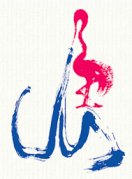
How does Traditional Chinese Medicine work?
Abbreviated as TCM, traditional Chinese medicine is a unique diagnostic and treatment system that has been practicing as the chief medical modality in China since 20th century B.C.. The role of TCM doctors at that time was as the family doctors today for they take care of the health and wellness of their patients.
The core concept of TCM is about restoring and maintaining a state of dynamic balances of yin and yang, qi (energy) and blood, and cold and hot in our body. When the equilibrium in our body is subjected to external stress, imbalance occurs.
The unique diagnostic system in TCM is “pattern differentiation”. For example, a migraine headache might be pattern of qi (energy) stagnation in the liver meridian, pattern of blood stasis, or pattern of external wind invasion depending on the clinical manifestations of the migraine.
Through a combination of observation, olfaction and auscultation, inquiry, and palpation, TCM doctors are able to detect the underlying imbalance of the physical and emotional bodies that cause functional discomforts, signs or even symptoms.
When root cause is pinpointed, different treatment modalities such as Acupuncture, Herbal Medicine, Tui-na, Moxibustion, Food Therapy, and Life style coaching are applied customarily based on the condition and needs of patients. Often time, patient’s diet, living environment and climate are taken into consideration in order to facilitate the restoring and rebalancing of the body.

